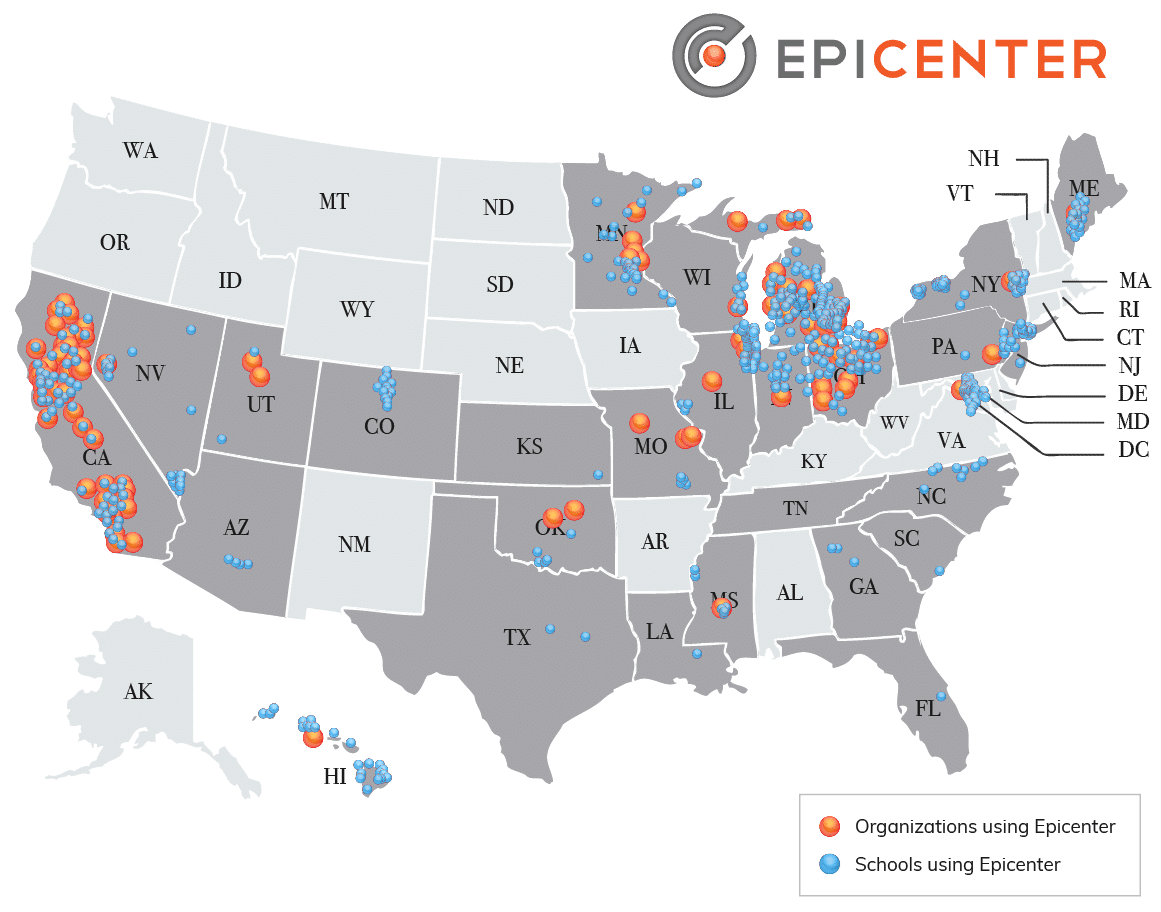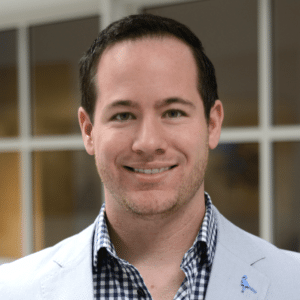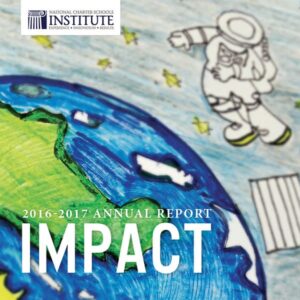Education is transformative and improving every day
Here’s something we know about education: It’s transformative and improving every day. That’s why our team at the National Charter Schools Institute is hopeful for the future. And it’s why you should be too.
Far too often we only hear about what’s wrong. We see headlines about bad actors putting their interests ahead of students, taxpayers and the public good. And we read stories that leave us shaking our heads. What we don’t see though, are the untold stories of everyday heroes.
Our team at the Institute goes beyond the headlines. We love being on the frontlines with the doers. We love helping people achieve more than they thought was possible. We love supporting people and equipping them with the ideas and tools they need to democratize excellence in education. And we’re proud to report that our efforts are making a difference.
We hope these stories inspire you, just as they inspire us, to look beyond the headlines, be optimistic about the future, and know that our collective efforts are making a difference for our kids and our country!
The National Charter Schools Research Library
Few educational reform efforts in the United States have gained more momentum than the charter schools movement, which began over 25 years ago with landmark legislation. Today, 44 states and the District of Columbia have chartering laws, allowing for the operation of nearly 7,000 public charter schools that serve over three million children.
The movement emphasizes the democratizing aspects of expanded choice, inclusive decision-making, and localized accountability. The organizational structure of charter schools encourages inclusion and diversity, especially for historically marginalized groups, and increased civic participation and public discourse surrounding common educational interests.
Many of the charter movement’s pioneers are moving on in their careers. Their papers and documents are getting scattered. That’s why our team embarked on an ambitious project in 2017—the creation of a research library. Through this project we are gathering primary source material, creating a permanent home for it, and making it digitally available to students, practitioners, and policymakers to inform the work of the next generation of innovators.
We are proud that this project is launched in partnership with Ember Reichgott Junge, the Minnesota State Senator who authored the nation’s first charter school law in 1991. A passionate advocate for chartering, Ember committed her time after leaving office to educating the next generation of charter leaders. This project will amplify her work.
Through this initiative, we have already identified and met with 67 initial stakeholders who could become contributors to this project. The group consists of members of the National Charter Schools Hall of Fame, representatives of the National Alliance for Public Charter Schools, the National Association of Charter School Authorizers (NACSA), a former governor, former legislators and legislative staff, a former US Senator, leaders of state charter school associations, lawyers, lobbyists, advocates, and pioneering charter school leaders. Fifteen charter pioneers have already signed Letters of Intent, demonstrating their interest in donating their collections to support this project. Many more have shown interest in participating.
Ember’s collection was also the first to be arranged, described, and digitized. The Ember Reichgott Junge papers at the Minnesota Historical Society are 7.65 cubic feet. A series within that collection includes legislative files, comprised of draft bills and materials relating to charter schools, specific district proposals, and her notes and speeches. Until her papers were donated, the Minnesota Historical Society had virtually no record of the legislative history of chartering even though Minnesota was the first state to enact a charter schools law.
Our goals for 2018 will be to continue identifying materials, building partnerships with historical institutions, and fundraising to accelerate progress. The Institute has convened a stakeholder group for pioneers and charter leaders to participate in this project. If you are interested in supporting or learning more about the ambitious vision and plans we have for this library, email us at Info@CharterInstitute.org or contact us on the Founders Library page.
Learn more about The National Charter Schools Research Library
Essay and Art Contests
Last year, we were proud to launch the inaugural Michigan Charter Schools Essay Contest. We have a rich history of supporting our home state’s charter community. We wanted to encourage students to show pride in their schools and the positive, transformative impact that their schools have every day. Writing under the theme of “What My Charter School Means to Me,” more than 200 middle and high school students shared amazing stories with us.
This year, we built upon this success by launching the Midwest Charter Schools Art Contest and by hosting the second annual Michigan Charter Schools Essay Contest.
Our art contest was open to all Illinois, Indiana, Michigan, Ohio, and Wisconsin students in kindergarten through fifth grade. Nearly 2,000 students submitted artwork based on the theme of “What Do You Want To Be When You Grow Up?”
The essay contest grew this year through a partnership with the Michigan Association of Public School Academies. Launched during National School Choice Week, this year’s theme was “Prepared to Succeed in Life.” Students were invited to share how their school is preparing them for college, work, and life. More than 290 essays were submitted from every corner of the state. Winners were celebrated at the state capitol in May during Charter Schools Day.
Reflections: A Conversation with Howard Fuller and Joe Nathan
One of the most powerful ways to drive change is through convening people in an environment that facilitates a thoughtful dialogue and exchange of ideas. From casual get-togethers to structured roundtable discussions, we believe that coming together helps strengthen the charter community, clarify our theories of action, and advance as a team united for kids.
This year, we were honored to convene a group of approximately 100 thinkers-and-doers from throughout the nation for a provocative evening with Drs. Howard Fuller and Joe Nathan during the National Charter Schools Conference in Washington, D.C.
Howard and Joe have both devoted their lives to "challenging the givens." Whether it has been working in communities to advance civil rights or working with lawmakers to empower families with choice, their careers have been devoted to improving the lives of those most in need.
Our conversation was spirited as Howard and Joe reflected on the last 25 years of chartering. They also discussed where we need to go to fulfill the charter promise and ensure a quality education for all children.
Achieving more with Epicenter
One of our passions is helping people and organizations improve their productivity and accomplish more. Through Epicenter―our digital compliance and performance management platform―we are able to do this across the nation. Epicenter is a powerful system that leading authorizers, boards, schools, and management organizations are using to improve their performance and productivity.
At last count, Epicenter is working in 27 states and the District of Columbia, helping streamline the oversight and reporting process for over 1,500 schools and authorizers, thereby allowing them to focus more time and energy on impacting the lives of more than 500,000 of our nation’s kids.
The reason we are so passionate about Epicenter is that it democratizes excellence in education.
Epicenter helps people and organizations move beyond managing documents, workflow, and compliance to allow them to grow their organizational capacity and do more great things for kids. The “more” might be spending more time with their team to coordinate and align instruction. It might be making more resources available for the classroom. Or it might be opening more new schools for kids. Whatever your “more” is, Epicenter helps achieve it.
Making more time for what truly matters!
Working across the country, we see firsthand the tremendous pressure organizations are under to document and demonstrate results. Whether it’s documenting “compliance with all applicable law,” or demonstrating academic and financial performance, we know the stakes are high.
We also know people are busy and are often being asked to do more with less. That’s why our team is always listening and seeking feedback as we continuously strive to enhance the power of Epicenter. Our goal is to help organizations create clarity, strengthen communications, and align for greatness. Through Epicenter, we help schools, boards, and authorizers save time and money and enable them to stay laser focused on their core mission of improving education.
Our team is also working to advance the visualization of data. Leveraging the power of technology to seamlessly turn data into information, Epicenter generates a cohesive set of academic, financial, operational, and demographic dashboards that can be used to assess progress, ask insightful questions, and improve performance.
And we’ve got more in development. In fact, our team is hard at work on some “game changers” that will equip people and organizations to accomplish even more. We simply view it as democratizing excellence. To learn more about Epicenter and stay up-to-date with its advancements.
Visit EpicenterNow.org

Meetings made easy
with easy access to your data from anywhere at anytime
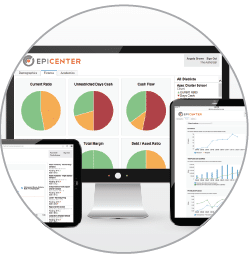
School analysis made easy
see everything at-a-glance with school and portfolio dashboards

Teamwork made easy
everyone on your team can have access to the same files and data
The Missouri Charter Public School Commission
succeeds with Epicenter
The Missouri Charter Public School Commission (MCPSC) was established in 2012 to serve as an independent authorizing entity with the authority to sponsor high quality charter schools throughout Missouri.
Under the leadership of the Commission’s Executive Director, Robbyn Wahby, the MCPSC works to protect the public’s interest and serves as a force for quality. Wahby says, “Ultimately our goal is to sponsor high-performing schools so everyone has access to a good school, especially in our two urban areas of St. Louis and Kansas City.”
Wahby recently testified before Missouri’s Joint Committee on Education where she outlined the differences between charter and district accountability. She also explained how parents, state standards, and the performance contracts (also known as charters)—work together to ensure schools are delivering results for both students and the public.
MCPSC leverages Epicenter to ensure accountability and transparency. Wahby says, “Epicenter allows us to take all contracts, data, and information from the school and simply and easily give that data to the public so they can determine whether we are doing our job and whether the schools are doing their job—both on the finance side and on the academic side.”
Learn more at www.mcpsc.mo.gov
Epicenter helps Fordham focus on quality
As one of the nation’s leading advocates for educational excellence, the Thomas B. Fordham Foundation is actively involved in promoting and improving the charter school experience.
Fordham not only conducts research and analysis on education, but also authorizes 11 charter schools serving 3,400 students in Ohio. Fordham’s mission is to promote educational excellence for every child in America.
We are focused on increasing the number of high-quality educational options for students in Ohio, and by authorizing charters in Ohio, we are directly helping improve the lives of children every day.”
- Theda Sampson, Director of Applications and Contracts at Fordham
Fordham is known for rigorous research and publishing numerous works, including recent publications on the common core, urban education, and improving school leadership. They also work to build broad, pro-charter and pro-education reform coalitions that advocate strengthening education nationwide. And their direct work in authorizing charter schools is proof of their success.
“Epicenter is great for us and our schools,” Sampson said. “We make sure every one of our schools has someone who knows how to use Epicenter. The Ohio Department of Education also uses Epicenter, so the school documents we collect can be aligned to their requirements for monitoring and compliance.”
Supporting boards to govern for greatness
Our team believes that great boards govern wisely. Great boards know the difference between governance and management. They cultivate trust and respect, establish high expectations and encourage the heart. That’s why one of the pillars of our work at the Institute is supporting charter school boards to govern effectively and wisely.
With that end in mind, we have years of hands-on experience working with boards to help them govern for greatness. This work has included:
- Presenting at numerous state and national conferences on topics that include: Governing for Greatness, 12 Board Responsibilities, Wise Governing through Policy, and Breakthrough Boards.
- Partnering with authorizing bodies to develop content for their board training programs, including the development of online training modules focused on the legal and fiscal responsibilities of charter school board members.
- Providing individualized, full-day and half-day strategic planning sessions to charter school boards in Michigan and other states.
- Since 2001, providing a board policy service that is legally grounded, practically tested and user-friendly to ensure that boards stay current with any legal or regulatory changes. Currently, more than 168 boards engage us for our policies service, and 83 schools use our companion administrative guidelines service.
- Publishing two books on charter school governance: Charter School Board University (2007) and The Seven Outs: Strategic Planning Made Easy for Charter Schools (2008), as well as numerous monographs on the subject.
This year, we conducted numerous customized, in-person board trainings. We also had the privilege of developing and delivering a series of board seminars for groups like the Chicago Public Schools’ Office of Innovation and Incubation, the Ohio Council of Community Schools, and Lake Superior State University, which authorizes 22 charters in Michigan.
We also launched a series of issue-specific webinars that equipped board members and school leaders with the knowledge and skills needed to effectively lead. Topics included understanding important changes in Michigan’s student discipline laws, how to effectively hold a board retreat, tips for maximizing a school’s facilities, including additions and renovations.
Building upon this work, our team is partnering with Grand Valley State University to launch a series of online training modules this fall designed to ensure all current and prospective board members know “the basics” and are positioned to govern for greatness.
Expanding our capacity to serve
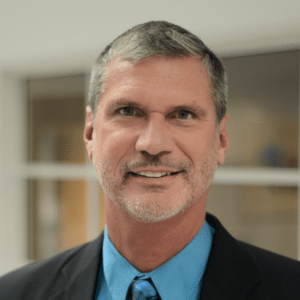
At the Institute, our mission is to inspire, equip, and support people and organizations dedicated to improving education for our kids and our country. Our team is always growing to help authorizers, boards, schools, and everyone who is involved in the success of charter schools achieve more. This year, we added two professionals to our team who offer a tremendous and varied skillset and are passionate about working with charter.
Dustin Sommer joined our team after five years as the Manager of Design and Engineering at one of the nation’s largest charter school management organizations. While there, he worked across the whole process, from real estate evaluation to retrofitting existing schools. Dustin was primarily responsible for the design and engineering of new facilities and assisting existing schools with space needs. Dustin brings big-operator expertise and knowledge to charter organizations of any size, and he offers facilities expertise and services to authorizers and boards.
Bill Pistulka joined the Institute this spring after a varied and distinguished career in K-12 education, including 28 years in the field of education as a teacher, coach, principal and superintendent in three different school districts. For the past ten years, Bill was the Charter Schools Officer at Northern Michigan University (“NMU”). During his tenure, Bill doubled the number of schools authorized by NMU, and worked to advance quality and accountability.
Gov. John Engler joins the Institute

Governor John Engler – visionary leader, charter champion, and newly appointed chairman of the U.S. Department of Education’s National Assessment Governing Board which oversees the National Assessment of Educational Progress, better known as the Nation’s Report Card, is now working with the Institute’s President and Board of Directors to advance excellence in education.
A lifelong champion for children and the 46th Governor of Michigan (1991 to 2003), Engler has a passion for ensuring all kids learn how to read so they are prepared to pursue and achieve their dreams.
As Governor, Engler’s vision and leadership spurred Michigan to become an early adopter of charter schools when he used his pen to enact Michigan’s charter law in 1993. Viewing the charter schools movement as a strategy to improve public education, Engler used his ideas and influence to establish the legal and regulatory framework necessary for the state’s charter community to develop and grow.
But he didn’t stop there. He also used his influence to foster the infrastructure necessary for charters to sustain beyond his time as Governor. He boldly nurtured universities to become authorizers. He encouraged the development of organizations to support the emerging movement, including the Michigan Association of Public School Academies and the Michigan Resource Center for Charter Schools (now the National Charter Schools Institute). And he put in place the mechanisms necessary for charter schools to access start-up funding, build and acquire facilities, reduce red-tape, pay teachers in-between state school aid payments, and so much more.
Having recently served as the President & CEO of the influential Business Roundtable, an organization composed of the nation’s leading CEO’s, Engler inherently understands the transformative power of education for individuals, but also for our nation’s economy and global competitiveness. His ideas and early writings on education and charters are being digitized and will be a part of our National Charter Schools Research Library.
Change Agents and Catalysts for Excellence
Authorizers ― and the critical role they play in the charter sector ― is not well understood. But at the Institute, we know authorizing matters and our team is honored to work with the people and organizations doing this important work.
We understand great authorizing is both an art and a science. We know the laws and regulations governing charter schools vary by state ― and so do the roles and responsibilities of authorizers. The 1,015 active authorizers in America differ greatly in their commitment and capacity. But they all share three functions in common: gatekeeping, overseeing, and evaluating performance.
Some authorizers are capable of doing much more though. We call these Alpha Authorizers. They go beyond the basics and function as catalysts for innovation and excellence.
This year, we are proud to say one of the nation’s premier alpha authorizers ― the State University of New York’s Charter Schools Institute (SUNY) ― adopted Epicenter. Led by Susie Miller Carello, SUNY is the largest university authorizer of charter schools in America with a portfolio of 179 schools serving nearly 83,000 students.
Under Susie’s leadership, SUNY has started a discussion about charter based teacher certification. This illustrates how great authorizers can blaze new trails and serve as agents of change.
SUNY exemplifies what it means to uphold high standards and serve as a catalyst for excellence. For example, schools they charter outperformed the state in both English language arts and mathematics by more than 11% and 16%, respectively.
We are proud to support their work, and the work of authorizers of all sizes throughout the nation.
Learn more at www.NewYorkCharters.org
Dr. Eric Thomas
When You Want to Succeed as Bad as You Want to Breathe, Then You’ll Be Successful.”
World-renowned motivational speaker, author, and educator Eric Thomas, Ph.D. (better known as ET) and the Institute teamed up to inspire both students and adults to find their WHY and give what ET calls their “120.”
As a former high school dropout living homeless on the streets of Detroit, ET’s message about being resilient and taking responsibility cuts through all the noise and resonates like no other with audiences of all ages. He has an uplifting personal story, along with a passion and special gift for inspiring others to take control of their destiny and achieve more than they think is possible.
Although ET is a highly sought after speaker by Fortune 500 companies like Nike, Quicken Loans, General Electric, along with collegiate and professional sports teams, his real passion is working with schools. Last year, the Institute was able to bring ET to share his energetic, can-do message with the students and instructional team at the William C. Abney Academy, authorized by Grand Valley State University and located in Grand Rapids, Michigan.
The Institute and Eric’s team at ET Inspires are exploring ways to bring ET’s message to more schools across the country who want to close the achievement gap by helping students alter their perception of school, and taking ownership of their learning.
Learn more at www.ETInspires.com
Honoring a Legacy
Kind. Humble. Smart. Loving. Generous. Wise. These are the type of words that only begin to describe Ann Skilling Andrews.
Born into a family with a strong educational tradition, Ann has lived that tradition forward and created a lasting legacy through the Skilling and Andrews Foundation.
Ann’s grandfather, William T. Skilling, was a young man with a dream. The family lived on a struggling farm, the sons attending school to eighth grade whenever farm work allowed them time. When William was about 16, they moved to Los Angeles where he was finally able to attend high school. He attended Stanford University for one year, and then transferred to the University of California at Berkeley, where he studied astronomy. William’s passion was teaching. He became a professor of astronomy at San Diego State University, where he met his wife, Bird. In 1905, William and Bird welcomed a son, Hugh H. Skilling (Ann’s father). A few years after graduating from Stanford, Hugh became a professor there and then chair of the Electrical Engineering Department. In 1936, he and his wife Hazel welcomed Ann into the world.
After being the third generation to attend Stanford University, Ann came to Michigan in 1959 to attend graduate school at the University of Michigan. There she met her (now late) husband, Frank M. Andrews. Frank earned his doctorate, and two months later they were married. A year later Ann completed her doctorate. Frank spent the rest of his life doing research work at the University of Michigan‘s Institute for Social Research. Together, Ann and Frank raised two sons, Steven and Kenneth. Following their parents’ love of learning, Steven earned his Ph.D. in Chemistry at Stanford, is currently teaching at Seattle University and holds an appointment at the Hutchinson Cancer Research Institute. Kenneth earned his doctorate in Electrical Engineering from Cornell University, following the Andrews family tradition, and currently works at the Jet Propulsion Laboratory in California.
Building on the legacy of those who came before them, Ann, Kenneth and Steven created the Skilling and Andrews Foundation in 1996, where they focused their giving on K-12 education. Believing in choice and the transformative power of education, Ann became interested in charter schools.
Ann recalls first meeting Jim Goenner in 2005. Over a decade later, their relationship, along with Ann’s encouragement and support, has propelled the Institute and expanded its impact. Ann views the charter strategy as a sustainable way to empower families with more choices for their children’s education. She also sees the charter promise of significantly deregulated schools as mostly illusory so far and would like to see more pushback against both the internal and external pressures of conformity.
Ann believes in taking action. Calling it experimental science, she says, “If you are going to make progress and achieve a lasting impact, you have to try – not just talk”.
Our team is grateful for the Skilling and Andrews Foundation’s generous support and investment in our mission to democratize excellence in education.

